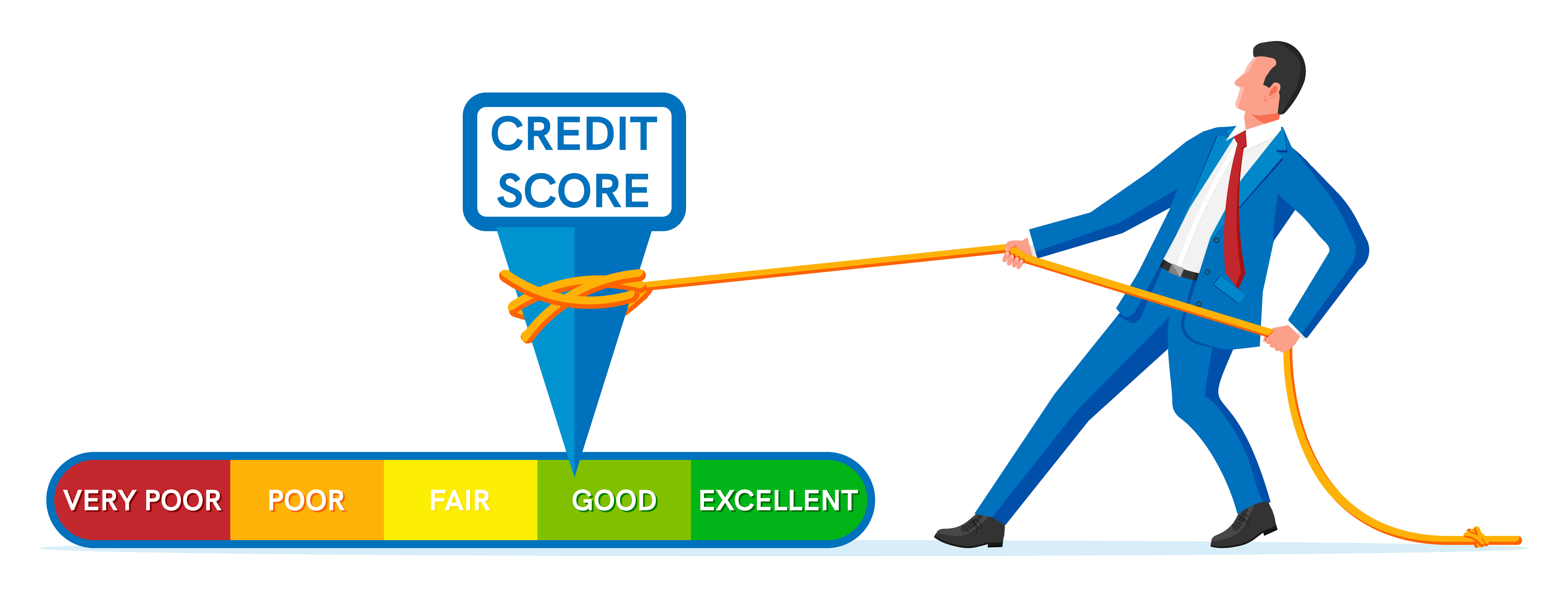What is credit management?
Credit management is the process by which a business handles extending credit to potential clients. This includes verifying their ability to pay, setting net terms, and collecting late payments. Since business-to-business (B2B) transactions often involve receiving payment after the delivery of a product or service, effective credit risk management is crucial to ensuring the continued financial health and viability of the business.
A credit manager or credit management team plays a key role in balancing the risks of late payments or defaults against the need to generate sales. They are responsible for assessing the creditworthiness of customers, establishing payment terms that protect the business, and deciding how to handle overdue accounts. Additionally, they are involved in planning cash flow, managing debt costs, and evaluating the costs associated with collecting or writing off bad debts. Without a strong credit management strategy, businesses risk cash flow problems and potential losses from unpaid invoices.
An additional angle to consider is the impact of modern technology and tools on credit management. Automated systems and credit management software can significantly improve the efficiency and accuracy of these processes, helping businesses quickly assess credit risk and monitor accounts receivable. By integrating digital solutions, companies can streamline their credit evaluation process, reduce human error, and make more informed decisions about extending credit, ultimately improving cash flow and reducing the chances of late or unpaid invoices.
Credit control and working capital
Credit is a vitally important aspect of both individual businesses and the economy as a whole: credit expands the money supply and supports growth that would be much slower or impossible to finance solely with cash. However, it is equally vital not to overstretch, particularly when it comes to extending credit to clients. Customers paying late is a major contributor to business bankruptcies as delayed or non-existent payments from customers means delayed or non-existent payments to suppliers. This essentially turns businesses into lenders, acting as financial institutions towards borrowers instead of focusing on the core business (and therefore profitability) of the business.
The credit management process can also reflect on a business's customer relations. A company infamous for being heavy-handed and unforgiving about client credit is unlikely to retain many happy customers. They may become known for being overly generous with terms or deadlines that may encourage poor compliance. The key is to be somewhere in the middle, balancing consideration with speed and discipline with understanding.
Accounts receivable and the credit management process
The credit management process has a few major steps. First, a new customer usually fills out a credit application. A credit manager uses information provided in that application to conduct a risk assessment and verify the creditworthiness of the new customer business, including financial research, purchasing credit reports, and contacting other businesses that work with the client. They may call trade references. They seek to determine not only how risky extending credit would be, in general, but also specific issues including whether a buyer will remain in business long enough to complete repayment, an overview of their balance sheet and financial statements and whether holding the debt of a particular buyer is a good use of company resources and a good allocation of the company's tolerance for risk and credit exposure. If approved, the customer will be able to purchase items on credit and will receive an invoice to pay after delivery.
The process may also include handling accounts receivables and collections when a client does not meet their payment schedule. A credit manager determines how this will proceed based on the circumstances of the client and of the business. For financially-sound clients with long histories, a polite email or phone call reminding them of their outstanding invoice should suffice. Many businesses have a late-payment policy that involves interest charges or penalties in line with interest rates.
In less-ideal circumstances, a lawsuit or collection agencies may become involved. In even worse circumstances, the credit manager may need to make the credit decision to write off a debt where the costs of collection become too high or the chances of success are too low.
Credit applications for business
A customer credit check should be done very early in the process of onboarding or even courting a new customer. After all, there’s little point in discussing terms with someone who cannot pay for a good or service in the first place. An application should capture all the information necessary for the credit management team or credit manager to determine suitability.
This will always include some level of financial records: for smaller transactions and credit amounts, this could be less formal such as a report prepared by a company's internal accountants. For larger amounts, an externally audited statement of accounts may be required. It will also usually include the credit rating, a bank reference, signed permission to verify financial status with the bank, and "trade references" from other organizations with which a customer does business. A history of debt collections, a negative credit bureau report, and low credit scoring are red flags.
Credit applications and formal business credit checks can be both costly and time-consuming. This may interfere with the negotiation process and delay or restrict sales agreements. As with many business processes, automation and advancements in technology—particularly fintech—are leading to a transformational alternative.
Using a process called digital net terms, a business can quickly and unobtrusively collect reliable credit information about any customer or potential customer. Resolve is one company that offers business credit checks for B2B companies. The information is used to set a custom credit limit for the customer as well as the net terms they’ll have for payment. Resolve helps companies offer net terms for 30, 60, or 90 days.
This process is so efficient, it can often be done during a sales call, allowing the sales team to offer credit and net terms without delay. It sets the tone for good customer relationships. When the customer invoice is issued, Resolve pays up to 90% of the invoice directly to the business’ bank account, and the customer has the full length of their net terms agreement to pay their accounts receivable invoice.
Why credit management is hard
Credit management without the support of modern fintech solutions or outsourced expertise is difficult because the processes and underlying credit analysis require a great deal of work. Statistical and analytical skills are a significant component given the need for computing risk. Just as crucial is the credit manager's ability to communicate and negotiate with buyers.
Every credit department must also be familiar with the laws governing the regions and industries in which they work and be confident in making decisions that will impact a company's bottom line. Counterparty risk is very real when assessing a company’s creditworthiness. Further, given the amount of paperwork needed to come to an informed decision, a credit manager needs not only skill, but perseverance and appropriate resources to create a credit management policy that cuts through the noise and finds what really matters.
In a small business, there may be no option for a credit derivative. This means no place for credit swaps or transferring credit risk. Every decision can impact the business’ liquidity and balance sheet.
On a more structural level, credit management processes are complex because they involve balancing competing interests, and possibly competing departments, of the same overall business. On the one hand, customer relations and retention usually benefit from a company being flexible with clients; on the other hand, it is inevitable that businesses (through their credit management processes and managers) must set hard deadlines and make tough decisions. A sales department may be concerned with closing a deal and therefore clash with the slower or even more seemingly-negative aspect of a credit management or financial department. Workflows must take each department’s needs into consideration.
Credit risk management and best practices
A good credit management process requires that care is taken to ensure both internal and external clarity, especially for companies who are moving their credit management online. Internally, there must be clear rules and roles with regard to credit and risk management. Lines of authority and responsibility should be laid out explicitly, as should the procedures of when to approve or deny a request for credit.
Credit risk management is even more important as financial crises in businesses impact B2B transactions. Basel regulations are creating challenges for central banks and commercial banks. Good credit risk management should include credit risk modeling, stress-testing, scoring and limits monitoring, portfolio management, pricing methodology, understanding risk profiles, and including adequate risk management processes.
Externally, credit contracts should include explicit and obviously-flagged information about the credit policy, terms of payment, and delivery. Deadlines and penalties should be obvious both for legal reasons and to ensure customers understand when and what they need to pay. This is a simple and effective risk mitigation strategy. Any contracts, including those originating from a credit manager or credit management department, should be always be reviewed by a lawyer or legal department prior to going out. Clarity helps prevent credit defaults (decreasing the probability of default), and credit losses.
Send invoices as soon as possible to give a client as much notice. Also, request that clients confirm receipt of the invoice. Certain email or invoicing tools can also inform you in real-time whether a client receives or opens an email. The invoice sent should be as detailed as possible to make it as easy as possible for a client to pay. Can they pay with a credit card? Bank transfer? Include not only the amount owed and order information, but also the full payment terms, deadline, banking information, other instructions to pay, and information for the relevant contacts.
Verifying the creditworthiness of clients is an ongoing and proactive process. Business conditions change and net terms should always be considered. Ensure that your customer’s financials are always up-to-date and meet the requirements laid out in the credit management process on a regular basis. If a customer falls behind, you may consider discontinuing their provision of credit. As a good good practice, a business should never fall into over relying on a single customer that the removal of their credit would threaten business viability.
As you can seee, there are a lot of steps and a lot of expertise required to run a reliable and efficient credit and risk function. There are many reasons why companies shouldn't be doing their own business credit checks. Many companies are now choosing to oursource their entire B2B credit management system to external third parties or even use automated digital solutions to help.
Interested in outsourcing your credit management? Learn how Resolve can help your business manage credit checks and net terms so that you can focus on your core competencies in order to drive business growth. Try Resolve's free business credit checks and experience the ease of a "quiet credit check" first hand.









